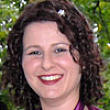 If your organization wants to change the world, one of the most important areas for you to invest in is building the right organizational team. Creating the best organizational teams that are not only passionate about the work they do, but are capable, creative, innovative, and dedicated takes a special kind of leader (or a few) and of course funding to support those staff positions. In my experience, many nonprofit Executive Directors often have selective skillsets that greatly benefit the organization like fundraising capabilities, or crafting big
If your organization wants to change the world, one of the most important areas for you to invest in is building the right organizational team. Creating the best organizational teams that are not only passionate about the work they do, but are capable, creative, innovative, and dedicated takes a special kind of leader (or a few) and of course funding to support those staff positions. In my experience, many nonprofit Executive Directors often have selective skillsets that greatly benefit the organization like fundraising capabilities, or crafting big  picture strategy. But building the right culture internally that attracts the most talented staff, keeps the team feeling inspired and empowered everyday takes a different type of skillset.
picture strategy. But building the right culture internally that attracts the most talented staff, keeps the team feeling inspired and empowered everyday takes a different type of skillset.
I recently read a terrific article in INC Magazine by Jeff Haden that outlined nine beliefs of remarkable successful people. I think Executive Directors can adapt some of these ideas to becoming better leaders at their nonprofit organizations. Check it out.
The people around me are the people I chose.
What are the types of people you would feel really good about waking up to every single morning and plotting with them to change the world? What kinds of qualities do they possess? For example, if you know that risk adverse people annoy you, then you don’t want to have risk adverse people join your team.
“If the people around you make you unhappy it's not their fault. It's your fault. They're in your professional or personal life because you drew them to you--and you let them remain, says Haden.
I have never paid my dues.
In just about every sector, there's this crazy notion that once you get to a certain level in your career you have paid your dues, and therefore should not be doing certain types of work that are “beneath you.” What a lame and unproductive attitude.
“Dues aren't paid, past tense. Dues get paid, each and every day. The only real measure of your value is the tangible contribution you make on a daily basis, says Haden. “No matter what you've done or accomplished in the past, you're never too good to roll up your sleeves, get dirty, and do the grunt work. No job is ever too menial, no task ever too unskilled or boring.
Remarkably successful people never feel entitled--except to the fruits of their labor.”
Experience is irrelevant. Accomplishments are everything.
As the founder of a web agency that works with nonprofits, I do a lot of interviewing and hiring. The first thing I look at in a candidate is NOT how many years of experience they have in X type of job, but how good are they at what they do. Can they take an idea and turn it into a creative web and social media campaign? Are they good at multitasking? Do they have good communications skills? For example, just because you have been a social media strategist for the past five years, does not mean you are awesome at building community, engaging with people on social networks, and tracking ROI. That takes a certain skillset and personality.
“Successful people don't need to describe themselves using hyperbolic adjectives like passionate, innovative, driven, etc. They can just describe, hopefully in a humble way, what they've done,” says Haden.
Failure is something I accomplish; it doesn't just happen to me.
Most nonprofits are incredibly scared to fail. But if nonprofits really want to advance their mission, then senior leadership must embrace testing new ideas quickly, learn from their mistakes and own that failure. Failing can actually help you discover something that you never thought about experimenting with and ultimately be a win for your campaign.
Haden says that the most successful leaders don’t blame others for their failure. “By distancing themselves, they don't learn from their failures.”
Volunteers always win.
The most successful entrepreneurs tend to volunteer to take on more responsibility when something needs to get done. They don’t just pass the buck onto someone else.
“Success is based on action. The more you volunteer, the more you get to act. Successful people step forward to create opportunities,” says Haden.
People who pay me always have the right to tell me what to do.
This advice from Haden will resonate with nonprofits because each has struggled with wanting to please their donors and funders. But how far should nonprofits go to please that $500 annual pledge donor VS a foundation that just funded a $1M dollar project?
Haden says that instead of complaining about how these important stakeholders are trying to control you or give you friendly advice about the way you should run a program, “work to align what you like to do with what the people who pay you want you to do. Then you turn issues like control and micro-management into non-issues.”
The extra mile is a vast, unpopulated wasteland.
Have you ever found yourself working on a project where you went the extra mile, but no one else was there to join you. The extra mile is a lonely place but it’s filled with tremendous opportunities.
“Be early. Stay late. Make the extra phone call. Send the extra email. Do the extra research….Don't wait to be asked; offer. Don't just tell employees what to do--show them what to do and work beside them,” said Haden.
The more you go the extra mile, the more successful you will be, says Haden.



COMMENTS